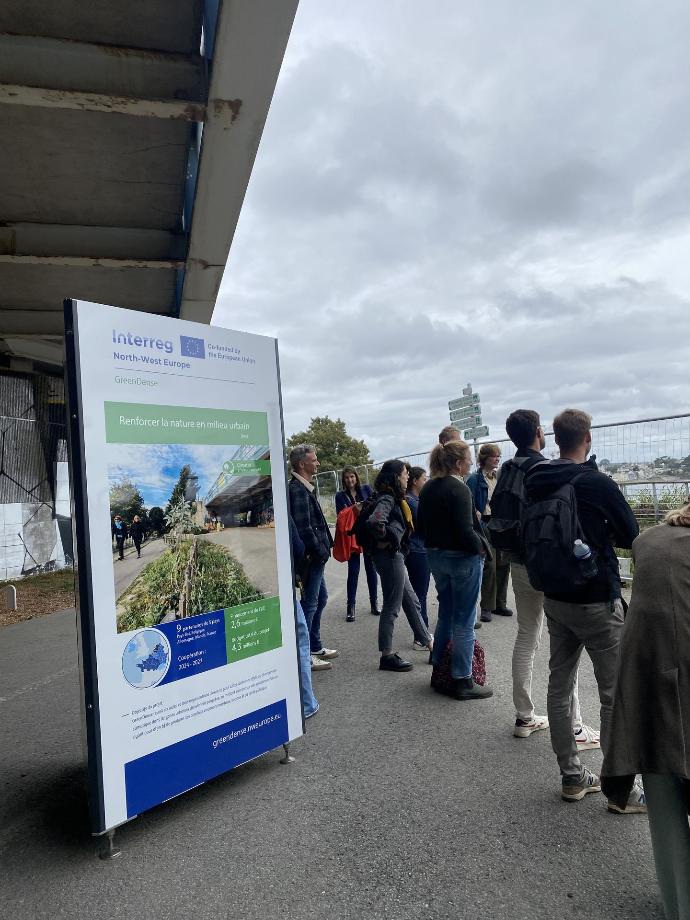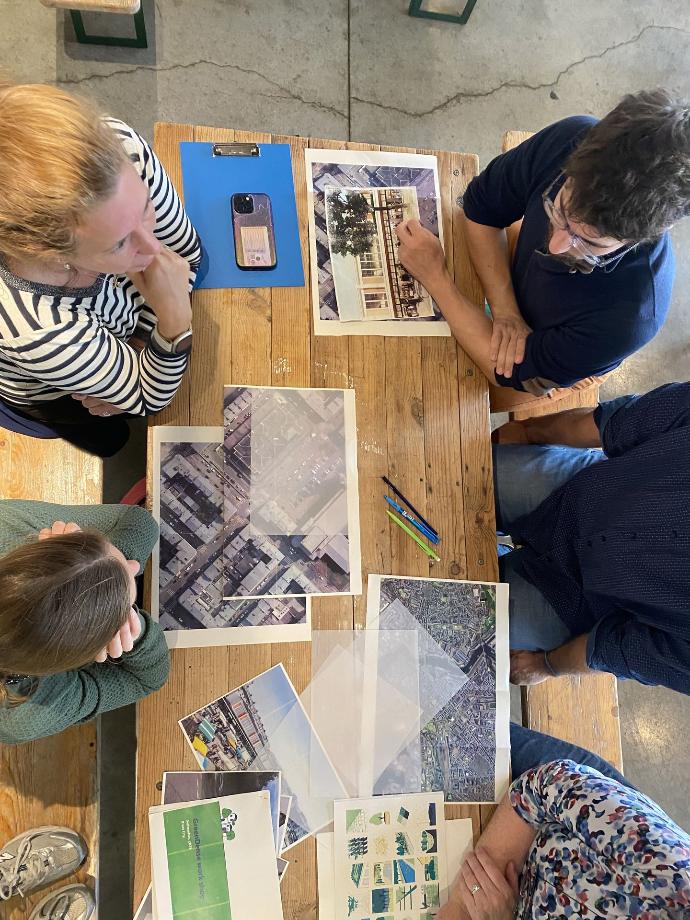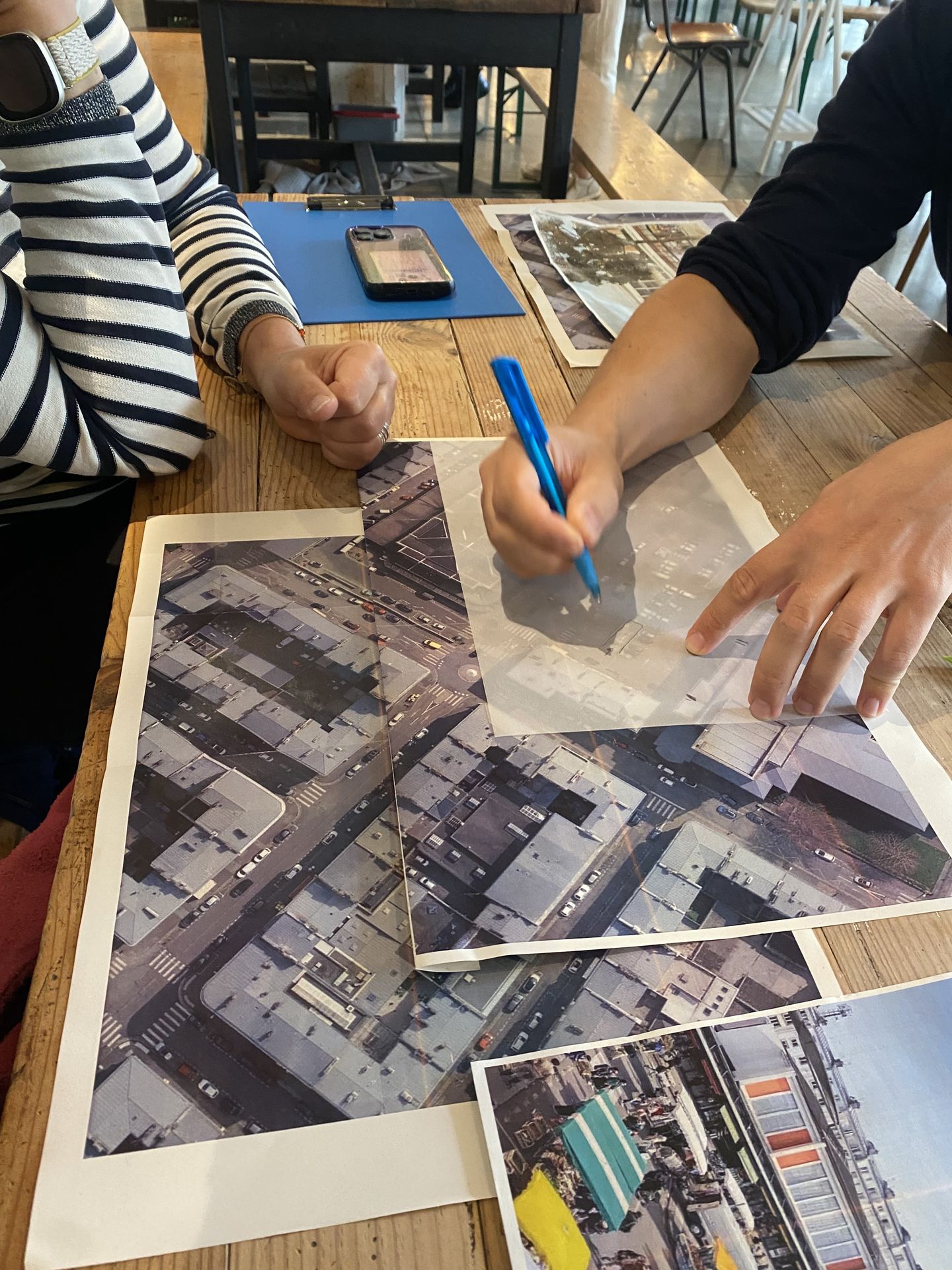Faced with the challenges of providing high-quality living conditions in increasingly dense cities while tackling climate change, cities across Europe are entering a pivotal moment for urban transformation. Brest Métropole is meeting this moment head-on.
Rebuilt after World War II, Brest was largely designed around car use, often at the expense of urban nature. To help the city address these challenges, the Greenspaces Department of Brest Métropole joined the GreenDense Interreg North-West Europe project, which promotes and tests nature-based solutions through the project’s innovative “Green Infrastructure (GI) mosaic” approach. This approach involves implementing small-scale GI initiatives across urban areas to create a network – or mosaic – of green spaces.
A major focus of GreenDense is collaboration and replication. Brest joined as one of six European pilot cities chosen to test and implement strategies and tools for sustainable urban development, each adapted to local cultural and environmental contexts. In addition to drawing on the expertise of the project’s knowledge partners – TU Delft, STIPO, and Plante & Cité – sharing experiences and insights among the pilot cities is central to the process. This exchange enables partners to learn from one another and develop urban greening solutions that best serve their communities.
From 16-18 September 2025, the Brest Métropole had the pleasure of hosting GreenDense partners for three days of exchange, discovery, and collaboration. The gathering provided an opportunity to showcase local initiatives already underway and to learn from the insights and best practices shared by European experts through presentations and workshops.
The meeting began at the National Botanical Conservatory of Brest, where partners were welcomed by Ms Frédérique Bonnard, Vice-President of Brest Métropole in charge of territorial cooperation and President of the Conservatory. Participants learned about the protection of endangered species and explored innovative planting methods to ensure healthy soil in dense urban areas, thanks to a presentation by Plante & Cité. Next, the group went on a guided tour of the Botanical Conservatory before visiting Brest’s GreenDense pilot site, Palaren Road. Partners learned about the site’s industrial past and the early stages of its transformation, illustrated through future design projections.
On the second day, various Brest Métropole departments presented participatory approaches that engage citizens in urban development – from the Quelibelle urban farm to the greening of schoolyards, and innovative renovation models for private housing blocks. These examples showed how Brest serves as an ideal testing ground for European and national programmes, turning cooperation and external funding into tangible, innovative solutions for the local area.
Other key highlights included hands-on workshops where groups worked together to propose fresh and practical ideas for Brest’s pilot initiatives. Participants also joined a harbour tour across the Bay of Brest, gaining a deeper understanding of the Brest territory and its specific challenges.
The three days of exchange were a clear success. Feedback from European partners confirmed the continued relevance of the work being undertaken in Brest Métropole. The event reaffirmed that GreenDense is far more than ‘just a project’: it serves as a catalyst, inspiring local authorities to innovate and improve daily – for the benefit of residents today and the sustainability of future generations.
Article written by Olivier Nimal and Paul Bonhomme from the Department of Brest Métropole.


